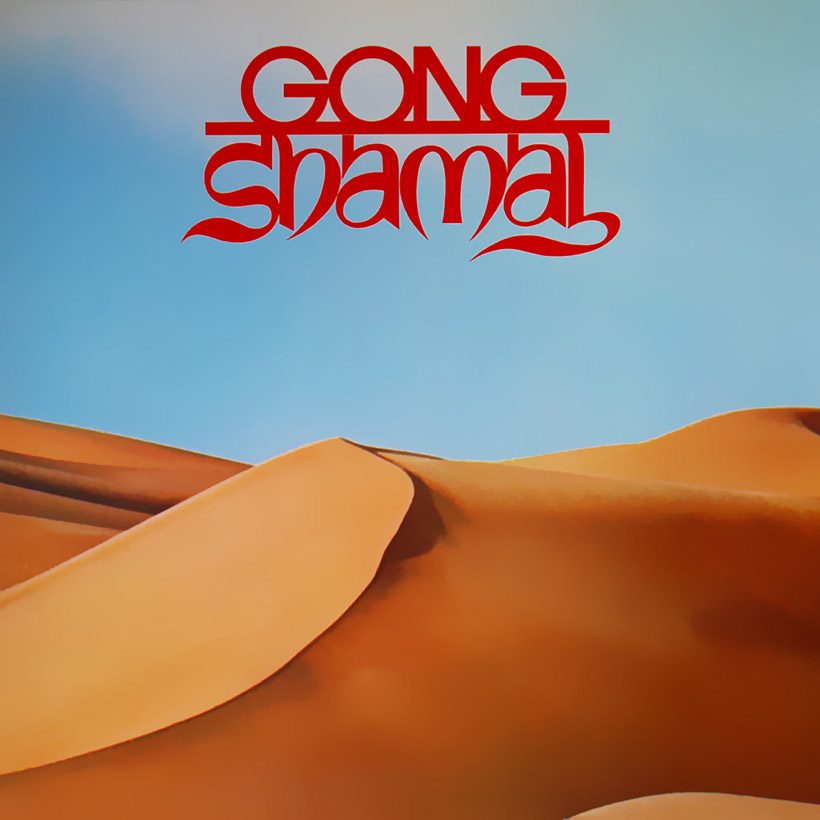‘Shamal’: How Gong Took A New Trip Into Eastern Mysticism
Gong’s ‘Shamal’ was a transitional LP, bridging between the stewardships of visionary Australian Daevid Allen and the prodigiously talented Pierre Moerlen.

Released in 1976, Gong’s Shamal was a transitional album for the band, marking the bridge between the stewardships of visionary Australian genius Daevid Allen and that of the more pragmatic but prodigiously talented Frenchman Pierre Moerlen.
The previous two years had seen band members come and go at planet Gong. You, the final release in the extraordinary Radio Gnome Trilogy, had been unleashed in October 1974. Shortly after, percussionist Moerlen left, followed by synth wizard Tim Blake, before husband-and-wife vocalists Daevid Allen and Gilli Smyth departed the collective. While Moerlan had been tempted back, guitarist Steve Hillage also jumped ship in order to pursue his own solo career, taking synth player and vocalist Miquette Giraudy along with him.
Listen to Shamal on Apple Music and Spotify.
Recorded across December 1975 in a variety of London studios with Pink Floyd drummer Nick Mason at the production helm, the resulting Shamal was a clear step away from the hippie-fied astral myths and eccentricities of the Allen era, towards a more straight-laced but outstandingly executed prog/jazz fusion hybrid infused with Eastern exoticism. One of the few vocal tracks on the album, the gentle and breezy prog of opener “Wingful Of Eyes” finds bassist Mike Howlett proving himself an offbeat if effective singer in Daevid Allen’s absence. The song also serves to establish the band’s propensity for globe-trotting, with Didier Malherbe’s flute steeped in Middle Eastern flavor.
“Bambooji,” which opens with Japanese flute, eastern percussion, and oriental-style singing, takes things further east before the track crosses continents, like a musical Phileas Fogg, to engage in a flute-led Andean jig. “Cat In Clarks Shoes” is a similarly multinational affair. Beginning as a jazz-inflected prog rocker, Malherbe’s saxophone adds a Jewish bent before guesting violinist Jorge Pinchevsky steers it towards Argentinian tango. Two final tracks, the contemplative, percussion-led “Mandrake” and the groove-based, Herbie Hancock-esque title track cement the band’s reputation as prog rock/jazz fusioneers par excellence.
Following the album’s release, Gong would reshuffle its members yet again, as Pierre Moerlen sought to reconfigure them as a jazz fusion instrumental unit. A new chapter in the Gong legend was about to begin…













Christian
December 6, 2017 at 3:14 pm
The album is phenomenal. Offbeat is a pretty good way of describing Howlett’s vocals, really not too different from David’s voice I suppose, although, I do wish they had found someone better, the instruments shine so incredibly on the whole album, it always seemed to me the vocal was just sort of there in a utilitarian way, it didn’t really stand out much compared to the instruments. Anyway, it’s already done now, can’t change it, Howlett is bass player extraordinaire, wonder if they could have tapped somebody else for vocals or if there was much discussion about it back in the day. would be interested to know if anybody was privy to the production. Cheers.